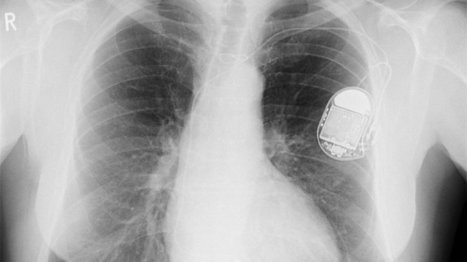Cardiologists in Los Angeles have developed a gene-therapy technique that allows them to transform working heart-muscle cells into cells that regulate a pigs’ heartbeat. This procedure, described today in the Science Translational Medicine, restored normal heart rates for two weeks in pigs that usually rely on mechanical pacemakers. The experiment, researchers say, could lead to lifesaving therapies for people who suffer infections following the implantation of a mechanical pacemaker.
"We have been able for the first time to create a biological pacemaker using minimally invasive methods and to show that the new pacemaker suffices to support the demands of daily life," Eduardo Marbán, a cardiologist at the Cedars-Sinai Heart Institute and lead author of the study, told the press yesterday. The approach is practical, added Eugenio Cingolani, a cardiogeneticist also at Cedars-Sinai and a co-author of the study, because "no open-heart surgery is required to inject this gene."
In the study, researchers injected a gene called Tbx18 into the pigs’ hearts. This gene, which is also found in humans, reprogrammed a small number of heart-muscle cells into cells that emit electrical impulses and drive the beating of the heart. The area in which this change occurred — about the size of a peppercorn — doesn't normally initiate heartbeats.
"We were able to get the biological pacemaker to turn on within 48 hours," Marbán said. To get the gene to the heart, the researchers sent a modified virus into the right ventricle through a catheter. The viral vector isn’t harmful, the researchers said, because the virus they employed was engineered to be "replication deficient" — meaning that it will not reproduce and spread beyond the heart.
Overall, the results of the study demonstrate that the pigs who received the gene therapy experienced an increase in heart rate that allowed them to be much less dependent on backup pacemakers. In contrast, the backup pacemakers were responsible for more than 40 percent of the beats in pigs who didn’t receive the gene therapy, but still underwent surgery.
more at http://www.theverge.com/2014/7/16/5906563/biological-pacemakers-gene-therapy-heart-muscle-cells



 Your new post is loading...
Your new post is loading...







